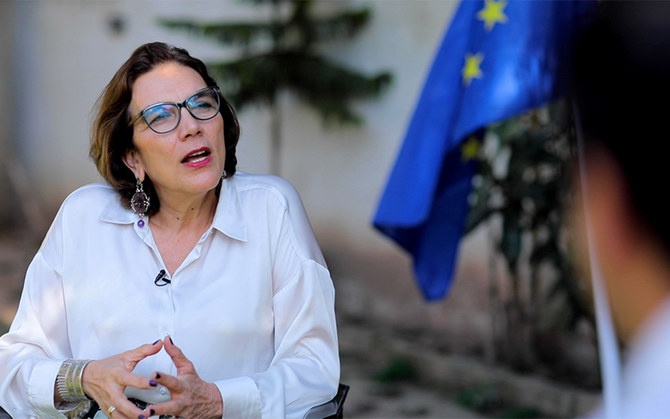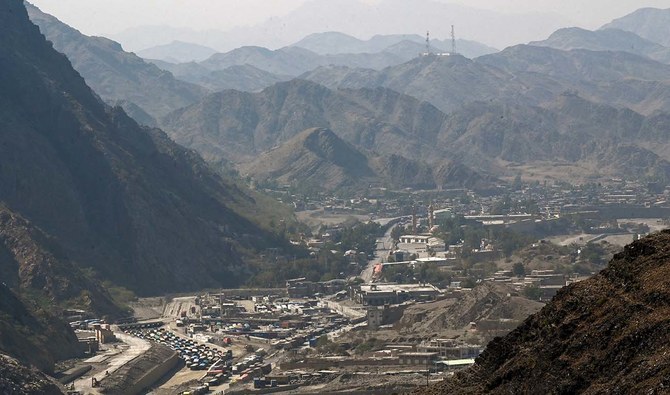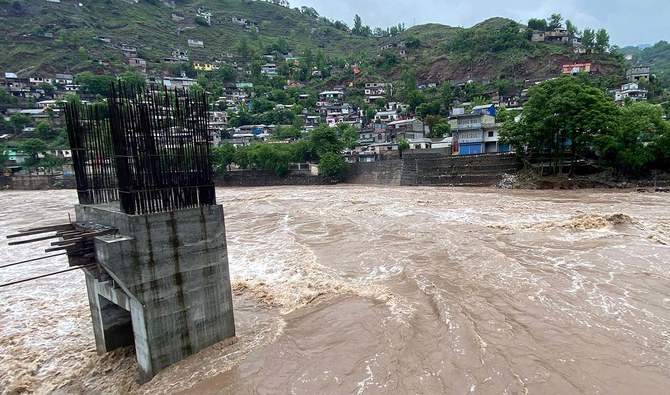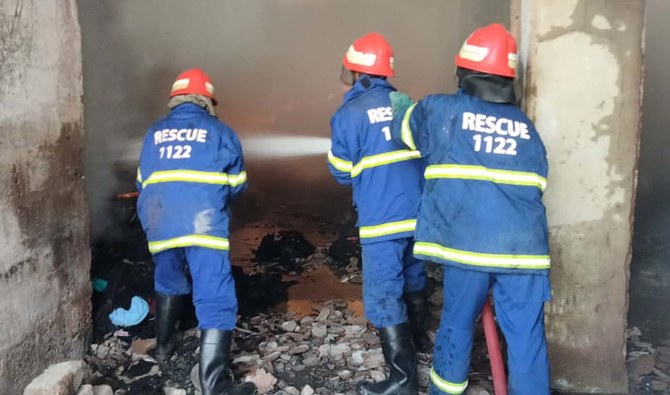ISLAMABAD: The European Union’s ambassador in Pakistan has said Islamabad should ensure implementation of labor laws in special economic zones being set up under the China-Pakistan Economic Corridor so that European businesses would also come forward to invest in the $60 billion agreement with Beijing to build energy and infrastructure projects.
Western officials have repeatedly criticized CPEC, saying the project is not sufficiently transparent and will saddle Pakistan with the burden of expensive Chinese loans.
“Any investment to a country that can lead to jobs is a good thing,” Androulla Kaminara, ambassador of the EU to Pakistan, told Arab News in a wide-ranging interview last week. “What we want to ensure is that there isn’t a backtracking of the rights of the workers or environmental protection in specific economic zones.”
The ambassador said the EU would want transparency, predictability and information about the laws and to see how long tax breaks would be applicable in the strategic economic zone so that European companies could also invest in Pakistan.
“More transparency and more predictability on these types of things will attract investments here,” she said.
Kaminara said the European Union had urged the Pakistan government to limit the number of crimes that carried the death penalty as part of its obligations under the GSP-Plus status that has helped the country boost its exports from 4.5 billion euros in 2014 to 7.5 billion euros last year.
The International Trade (INTA) Committee of EU Parliament last year extended the Generalized System of Preferences-Plus (GSP-Plus) status granted to Pakistan in 2014 which enables the country to enjoy preferential duties on exports for the next two years. The EU’s GSP removes import duties from products coming into the EU market from vulnerable developing countries to help them alleviate poverty and create jobs.
“Under the GSP-plus obligation, Pakistan should limit the number of crimes that lead to the death penalty,” Kaminara said, adding that the EU would convince countries to eliminate the death penalty, but under the GSP-Plus regime, UN conventions mandated in the very least limiting the number of crimes leading to the death sentence.
Pakistan has 33 crimes that carry the death penalty and over 4,000 people on death row. “So obviously we would like to see some addressing of this issue,” Kaminara said, adding: “We don’t prescribe as to where the death penalty should be.”
Pakistan’s GSP-Plus status has been extended till 2022, but the country has to ensure tangible improvement in its human rights and labor laws’ record to keep enjoying the preferential incentives.
The EU accounts for at least 33 percent of Pakistan’s total global exports, composed mainly of textile and leather products. The EU published its last report on Pakistan’s progress on the 27 UN conventions in February 2020, citing “mixed progress.”
Under the obligations, Pakistan is required to enact legislation on enforced disappearances, the wellbeing of journalists, appoint human rights commissioners and provide a conducive working environment to aid workers and civil society.
“One of our concerns is the bill for protection of journalists [which] has not been actually tabled though we understand that this bill has been drafted,” Kaminara said.
The ambassador lauded a recent Supreme Court judgment barring the death penalty for at least three inmates with mental disorders.
“I have to note that most of these people on death row are not there on the basis of terrorist charges which is of course of particular concern to Pakistan, but for other types of crimes we won’t expect to lead to the death sentence,” she said.
The EU has also been working with the Pakistani judiciary to improve access to justice, manage caseloads and ensure swift delivery of justice to litigants. Under the program, the Pakistani chief justice would undertake study visits to European countries for training, exchange of knowledge and experiences.
“It’s a peer to peer knowledge transfer [program]” she said.
The EU is spending around 100 million euros annually in Pakistan under its development cooperation program to train and enhance the capacity of the police to collect evidence and curb sexual violence against women. It is also financing a forensic laboratory in Lahore to upgrade its equipment to ensure that evidence is not lost, the ambassador said.
“The evidence is properly handled that can help the judiciary prosecute in certain cases rather than fingerprints being lost, and other evidence not being properly handled, therefore not leading to convictions,” Kaminara said.
The ambassador said the EU was launching a 90 million euro program for business development at the local level in Khyber Pakhtunkhwa, Balochistan and Sindh to help women entrepreneurs and small and medium enterprises.
“We are working actively with the business community in Pakistan to see what opportunities exist and what potential impediments exist for them to export in the EU,” she said. “This country has quite a lot of talent, not just in men, but also in women, and if the country is to develop, you need the totality of the talent to be able to participate in business.”
The ambassador also acknowledged Pakistan’s performance to meet an action play by the Financial Action Task Force [FATF] so it could be removed from the global watchdog’s grey-list of countries with inadequate terror funding controls: “What we have seen and what we have recommended publicly is the progress. Huge progress was made.”
















